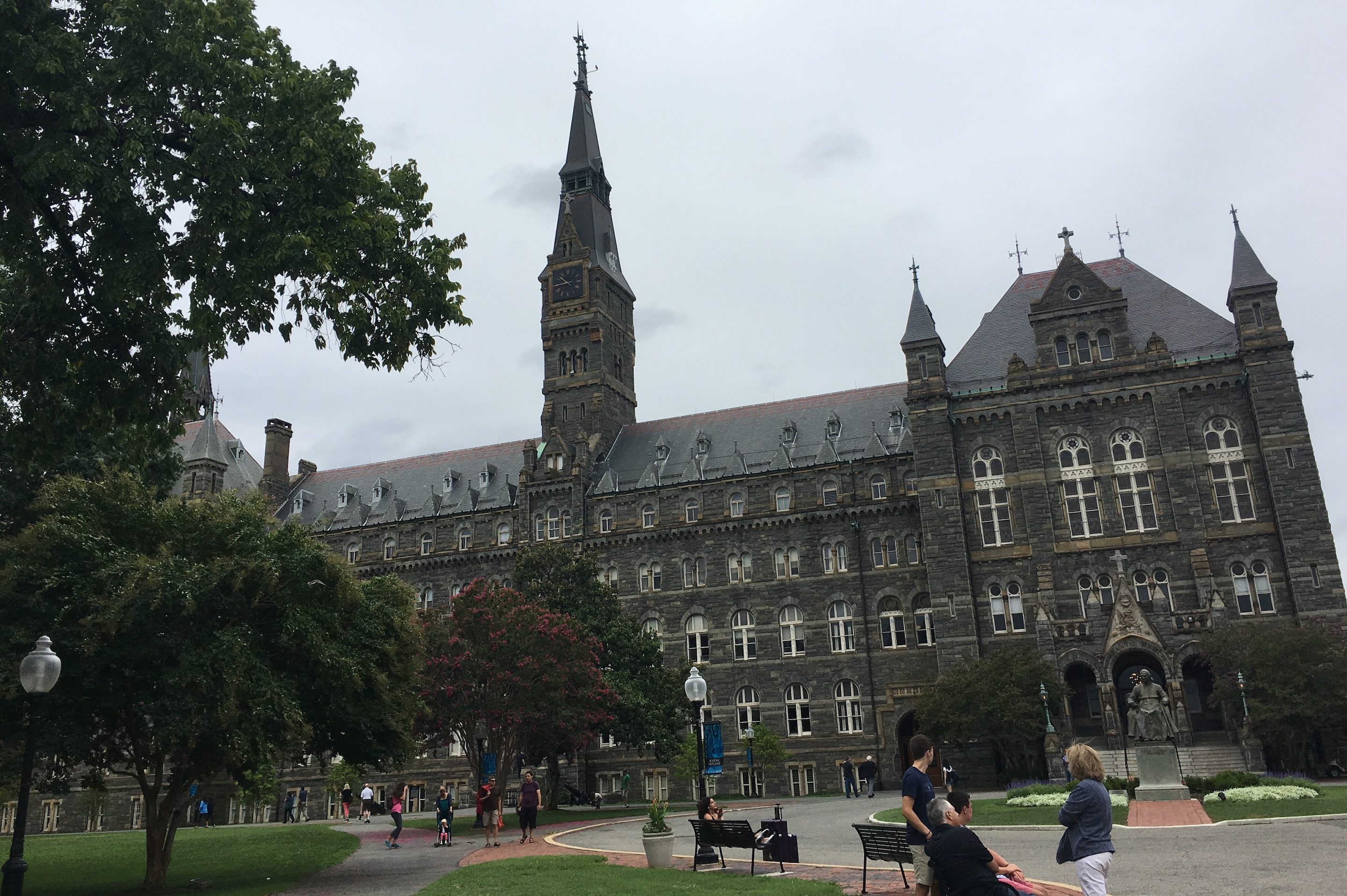The SFS Academic Council (SFSAC) released a petition to eliminate the consideration of standardized testing scores and legacy status in Georgetown’s admissions as part of the SFS’s commitment to global anti-racism.
The petition, which has 117 student signatures and 55 faculty signatures at the time of publication, follows the SFSAC’s release of a letter to the SFS Dean’s Office in July suggesting several steps the SFS can take to adopt anti-racism as a core value. The letter also advocates for increased diversity in curriculum and opportunities to reflect on and discuss racial justice within the SFS community among other policies.
SFS Dean Joel Hellman announced the inclusion of global anti-racism as one of the school’s core principles in June. Since then, the SFS has taken some steps to enact anti-racist policies, such as appointing Scott Taylor as vice dean for diversity, equity, and inclusion, a new position created to further the SFS’s commitment to anti-racism. The SFSAC petition expands on this commitment by advocating for a more equitable admissions policy, an effort continued from a petition released over the summer to end legacy prioritization in admissions.
The SFSAC argues in the petition that the use of standardized test scores in admissions perpetuates racial inequality. Rather than predicting college performance, they assert, standardized test scores correlate more strongly with a student’s socioeconomic status. “They largely reflect socioeconomic statuses and the ability to hire tutors, spend time studying, attend preparatory programs, and other pre-exam factors more accessible to wealthy white students,” the petition reads.
It also cites legacy prioritization as promoting bias in admissions, arguing that the practice, popular at many elite institutions, gives an advantage to students from privileged backgrounds whose parents also had the opportunity to obtain a college education from those same institutions. “[Legacy prioritization is] a tool… to prioritise privileged wealthy and white applicants over immigrants, applicants of color, and low-income, first-generation students,” it reads.
Removing standardized test scores and legacy status as factors in admissions decisions would contribute to more racially and economically diverse admissions, said petition author and SFSAC Advancement Chair London Diller (SFS ’21). Diller hopes these practices would be replaced with a more holistic application process that gives strong weight to extra-curricular achievements, which more students have equitable access to.
“The holistic review is what Georgetown advertises the admissions process as, but clearly it comes down to a calculus between being in the appropriate range of scores,” she said.
Additionally, the petition advocates for improving recruiting efforts to target a more diverse group of students regionally. “A disproportionate number of applicants and students come from a small number of states,” it reads. “Increasing regional outreach will help drive more diverse recruitment efforts and applicants.”
It also argues the SFS should expand its outreach efforts specifically to students of color and suggests providing mandatory bias training to Georgetown faculty, staff, and students involved with admissions, as well as identifying alumni and students of color who can serve as representatives of the SFS in outreach.
Finally, the petition argues that Georgetown should begin using the Common Application (Common App) for admissions. The Common App is an application portal that allows students to apply to multiple universities at once by filling out a general section that goes to all schools, including academic history and a personal essay, in addition to school-specific essay supplements. Currently, Georgetown has its own application portal, which makes applications less accessible, and the petition notes many of Georgetown’s peer institutions, such as the eight Ivy League schools, use the Common App.
“We’ve done our best to address each of the issues that people are considering at Georgetown and schools across the country,” Diller said. “It’s definitely not exhaustive, but it’s what so far has come up from the student body.”
Diller also explained that the SFSAC has been in contact with Taylor regarding the goals of the petition and other anti-racist initiatives. Taylor has been supportive of the SFSAC’s aims and introduced the petition to faculty members who had been working with him, Diller said.
These anti-racist initiatives are important for making Georgetown a more diverse and accessible environment, she argued. “The only way we can create a community where everyone can learn about different experiences throughout the world is by actually having students from those different settings at Georgetown,” she said. “It just makes everyone’s experience more enriching.”






